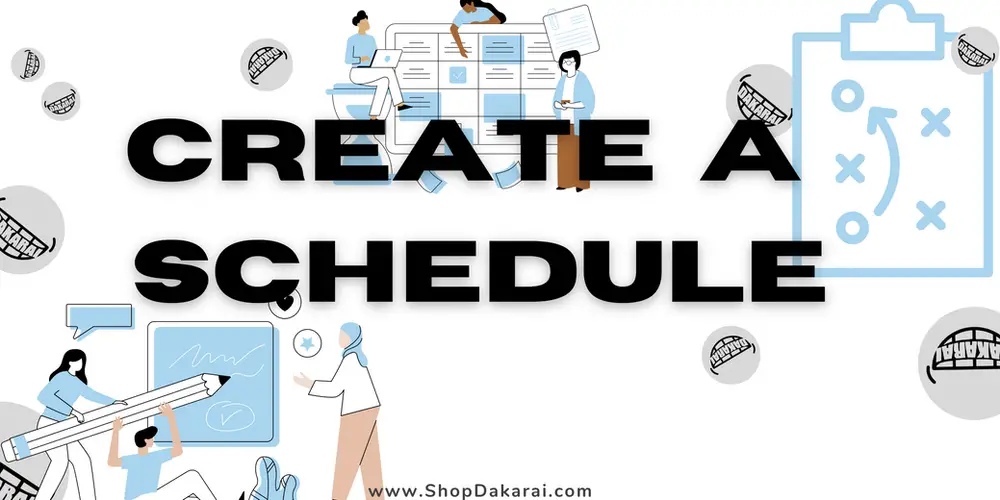
To stay focused, Create a quiet space for yourself, get rid of distractions, and listen to soothing focus music.
Avoid the hassle of procrastinating because you can’t focus.
In order to assist you in focusing, I’ve examined a range of practices and put together a list of those that stood out.
You can accomplish a range of personal and professional tasks with the help of concentration.
Keep your focus on the task and resist the urge to give in to distractions.
Create a to-do list and try to resist the desire to multitask. It takes time to develop your focus;
you can only do it after a while. Understanding how your concentration is affecting your life is the first step toward improving it.
Get assistance with concentration so that you can focus on what matters most to you.
Being unable to concentrate can dramatically impact your productivity.
Knowing how to focus on what needs to be done can assist you in staying on track with your most important tasks.
Instead of tackling a single large task, break it down into smaller, manageable tasks that you can finish in less than a day.
This way, every time a portion of the task is completed, you will feel more rewarded.
Related resource:10 Tips to help you Avoid Distractions and Stay Focused
Get Rid Of Distractions.

You can improve your ability to concentrate by turning off all internal and external distractions.
Shut off notifications, exit social media and other apps, and keep your phone out of sight.
Place a clock in front of you to track your progress and use a timer to break down long tasks into smaller,
more manageable chunks. Make it a habit to schedule time each day to complete a specific task or activity.
During this time, ask to be left alone or go to a place where others are unlikely to bother you.
Try to minimize or eliminate as many distractions as you can. Start with the simple things like:
- going somewhere quiet
- closing the door to your work area,
- disabling notifications on your phone or turning them off completely,
- asking those nearby not to disturb you for a few minutes.
- Clean your work environment.
- Play relaxing background music to help you focus.
Fuel Your Body

You may know, as I do, that when you are hungry, it is difficult to focus, and you may become cranky.
So, if you want to keep your brain focused and your energy levels up,
avoid delaying or skipping meals to keep you energized to focus on your next task.
Make A To-Do List-Set A Daily Priority.

Having a written action plan can boost productivity and help you stay focused.
Put two or three important tasks at the top of your to-do list.
Prioritizing the tasks you want to complete can assist you in remaining focused and organized and increasing your overall productivity.
Setting aside specific time slots for each task is also beneficial because it allows you to keep track of how much time you spend on each task.
This enables you to tackle important tasks when your mind is clear,
and your energy levels are high. Making a to-do list at the start of each day or week can help you stay focused and motivated.
Prioritize the most important or challenging tasks first.
Save the easier or more manageable tasks for the end of the day.
Setting deadlines for yourself can help keep you focused and on track to ensure you stay caught up in completing tasks.
Make a daily goal for yourself and write it down. To avoid feeling overwhelmed, break large tasks into smaller tasks.
A well-organized to-do list can be beneficial to your productivity. Divide your work into three categories: daily, weekly, and monthly.
Organize these lists by priority, so you know what needs to be done first.
Cross off each task as you complete it on your list.
Reduce Multitasking
Reduce multitasking because it is not more effective or efficient, especially when you need help focusing.
Multitasking can reduce focus and cause distractions, meaning tasks take longer to complete and yield poorer results.
When you focus on a single task at a time, you can improve your focus much more than when you multitask.
Multitasking is associated with increased distractions and difficulty maintaining concentration on studies.
Reduce your multitasking to enhance your focus.
Many people mistakenly believe multitasking is beneficial because it allows you to complete multiple tasks simultaneously.
Multitasking, on the other hand, prevents you from being fully engaged in one task and slows down your productivity.
This is where a to-do list comes in handy: it will encourage you to complete your tasks one at a time.
Practice Mindfulness And Meditation.

Meditating or participating in mindfulness activities can boost one’s well-being, mental fitness, and focus.
You can concentrate on meditation throughout the process to avoid being distracted by your thoughts.
You can learn to use meditation to refocus your attention on a task to complete it successfully,
even if interrupted. To focus and calm your mind:
- Take a few deep breaths.
- Sit back and close your eyes if you are experiencing work-related stress, a lack of energy, or distractions.
- Take three to five long, deep breaths.
Taking deep breaths can stimulate your brain, making it easier for you to focus on the current task.
Use mindfulness techniques, and Mindfulness is a form of meditation that focuses on the present.
You can manage distractions to increase your focus by engaging in mindfulness practices.
12 Ways To Practice Gratitude For You– If you want to see some of the elements that can help you become more grateful, check out this article.
Focus On The Moment.
Practice concentrating on the present moment to sharpen your focus.
Choose a task and give yourself 30 minutes to work on it without interruptions. After a few weeks,
when you have mastered focusing for 30 minutes, see if you can increase that time by five or even 10 minutes.
Learning to focus for extended periods will make it easier to focus on completing tasks.
Do not postpone your tasks until today, tomorrow, next week, or next month. Instead,
finish them right away so you can move on to the next task.
For example, do not put off finishing your homework from this week until Friday afternoon.
Have A Goal In Mind.
Having a goal in mind will motivate you to finish your work and stay focused on the task at hand.
Establishing a short-term or long-term goal can help provide focus and an achievable target to work towards.
Remind yourself of what you’re working towards.
Remind yourself of all the things you can achieve due to the work you have completed. Ask yourself.
- Why are you working on this task?”
- Is it beneficial to your career, or are you simply following orders from your boss?
When you work without a goal, you frequently put things off.
Being inspired to work and having a goal in mind will improve your outlook on success.
Take A Short Break.

Take short breaks between each task or set a timer to improve your ability to focus.
Taking short breaks can help you focus more. Take a short break when you start to feel stuck or distracted.
Moving around, talking to someone, or even switching to a different task can help keep your mind focused on the task at hand.
Take breaks throughout the day. Take at least a five to ten-minute break.
This will give you the motivation to complete the task, a break to rest your eyes, and some time to prepare and refresh your mind.
For example, stand up during some of your breaks. Look out the window or go for a short walk outside to get your blood pumping.
These short breaks will reenergize you to get back to work.
Or even Make coffee, listen to upbeat music, have a conversation with a friend, or read a book during this time.
Create-Clean Space For Work.
De-clutter your work area, as having a clean environment can help you focus and work much more effectively.
Clear your workspace of anything that might cause you to become distracted or unrelated to the task.
Taking the time to de-clutter your work area is beneficial to make it more aesthetically pleasing and for organization and focus.
A tidy work area can help bring a sense of calm, making concentrating easier.
Cleaning your work environment that encourages clarity can help you organize your thoughts and focus on a single task.
You should tidy up your desk and arrange your computer’s desktop.
Use A Timer.
Using a timer or phone alarm can teach your brain to focus closely on a task.
Take a brief break after the alarm goes off for a few minutes, then restart the timer and continue.
This is a beneficial thing to do to sharpen your focus. Set a time limit for yourself for each task.
Setting a time limit for yourself for each task is a crucial way to stay focused and on track.
Write how long it will take to complete each task next to each item on the list. This will make you less likely to slack off instead of getting anything done.
Set clear deadlines for all of the things on your to-do list.
By doing so, you create a sense of urgency and focus on an important task.
How To Stay Focused On Your Goals

Create a plan of action to help you stay focused on your goals. Make a list of your goals,
keep track of them, and motivate yourself to keep going.
Doing this and many other practices can improve your ability to focus on your goals.
Check out this list of techniques to help you.
Make a plan of action to keep you focused on your objectives. Make a list of your objectives, keep tabs on them,
and inspire yourself to continue. Creating a plan of action helps to keep you motivated and on track toward achieving your goals.
Dividing a larger goal into smaller parts that feel more manageable can help you focus on your goals better.
Sometimes life gets the best of you, but you must remember to stay within the bounds that you maintain sight of your goals and what you want from life.
It would be best if you stayed focused on your goals, which is also beneficial.
Chasing your goals can be difficult sometimes, and you may feel like giving up. If this is you, here is an article to help you persevere in your quest to accomplish your goals. 9 Top Tips For Never Giving Up On Your Dreams
Write Down Your Goals.
Another way to focus is to write down your goals and keep them in a visible place.
This can help you remember why you are working and improve your focus.
Writing down your goals can also assist you in developing a strategy for achieving them.
Writing down your goals also allows you to evaluate their viability, another benefit of helping you focus on your goals.
Practice writing smart goals to help you focus on your goals.
Smart goals are time-based, specific, measurable, attainable, and realistic.
Smaller Parts
By breaking a project down into individual tasks and establishing a timeline for each task,
it is much easier to stay focused and prevent procrastination.
Planning can assist you in identifying the smaller tasks that are involved in achieving a larger goal—dividing a larger goal into smaller parts that feel more manageable.
Practice Time Management
Time management is an essential skill that can help you stay on track and increase your focus.
Effective time management can ensure enough time to complete your task.
Effective time management can help you stay on track and maximize your productivity by breaking large projects down into smaller tasks and setting deadlines.
Clean Your Environment
Another factor to consider when you want to stay focused on your goals is your work environment.
Consider ways to limit or minimize distractions in your work environment.
This could include rearranging furniture to noise-canceling headphones or blocking certain websites.
Clean Your Workspace
A clean desk with easy access to supplies can help you maintain focus and mental clarity as you work toward your objectives.
Use Headphones
If you work in an area with others who may distract you,
use headphones to listen to music or other sounds that help you focus more on your goals.
Track Your Goals
Tracking your progress can also assist you in modifying your plans to stay on track and focus on your goals.
Tracking your goals motivates you to keep working toward your goals and gives you a sense of accomplishment for the tasks you have completed so far.
You can track your progress toward your goals daily,
weekly, and monthly to improve your concentration.
Measuring your goals can provide you with an accurate completion schedule and motivate you to continue working toward them.
I recommend reading this article,9 Tips To Help You Start Tracking Your Goals which gives you a more in-depth look.
Have A Mission Statement.
Creating a mission statement can be highly beneficial when it comes to staying focused.
Ask yourself, What do you want to accomplish, and what do you value?
Make a four- to a five-sentence mission statement and post it where you can see it every day.
Reread your mission statement and remind yourself why you are working on a task whenever you become distracted or lose focus.
It can be challenging to focus on our goals when they appear distant.
But it will be much simpler if you can set up a series of mission statements or milestones for your goals.
Set a monthly or even weekly milestone to help you stay on track as you work toward your long-term target.
To create an effective mission statement, it is key to have a clear vision of your desired accomplishments and aspirations. 11 Simple Practices To Help You Visualize Success will help you define and communicate your mission more effectively.
How To Stay Focused While Studying

Avoid outside distractions such as TV, social media, and video games to stay focused while studying.
I wanted to learn more about studying while staying focused,
so I did some research, and this is what I discovered.
Here are some of the best tricks I have discovered for increasing mental focus while studying.
When distractions such as television, smartphones, social media, friends,
and family can divert your attention away from your academic goals, it can be challenging to focus on your work.
Make your environment suitable for concentration. Make a study schedule to make the most of your study time.
To avoid becoming overwhelmed, try out different study methods and take breaks.
With some trial and error, you can develop a routine that will aid you in remaining focused.
Get Rid Of Distractions.
While studying, eliminate outside distractions to help you stay focused.
Various methods can help you stay focused on learning, such as breaking up study sessions into short chunks with regular breaks,
creating an organized workspace that is free from distractions,
and rewarding yourself for completing tasks.
Take your phone out of your study area for an hour or two to avoid distractions and to reenergize your mind and body.
Create A Schedule.
Keep track of your assignments and exams to keep you focused on the next set of tasks.
A wall calendar or diary is an excellent investment for staying organized, identifying important dates,
and staying on track. Make a list of your day’s study objectives.
What do you want or need to accomplish? If you need to write 10 pages in a week,
divide the task into smaller chunks and schedule 2 pages per day for five days.
Create A Relaxed Study Environment.
If you plan to study at home, keep your room tidy and your desk clear of clutter;
doing this will help you focus while studying. Furthermore, using relaxing music can help relax your senses.
Having a separate area dedicated to your studies and free from distractions such as electronics can help you focus better.
Choose a location where you can speak freely and without interruptions.
Large coffee shops are great study environments, similar to libraries and study rooms.
Take Breaks
You can improve your focus and productivity by taking regular breaks.
Whether going outside for some fresh air or doing some stretches,
taking time to recuperate and reenergize can help you focus better in class and keep you from becoming overworked.
Getting enough sleep can help you focus better while you’re on break.
Lack of sleep can have a negative effect on your health and make it difficult for you to work. Sleep aids in memory retention, which is essential for studying.
Getting enough sleep can impair the brain’s ability to process and store information,
making it difficult for you to focus on your studies. Take breaks to allow your mind to rest.
Drink Plenty Of Water And Eat Well.
To focus better and improve your health, drink plenty of water and eat a balanced diet.
Set a reminder on your phone to drink a large glass of water every couple of hours and to snack on healthy fruit and nuts to avoid feeling grumpy and sleepy.
Keep a snack close by to keep yourself energized and focused while studying.
Try to limit it to something straightforward, like a
- few nuts,
- some blueberries
- a square of dark chocolate
Avoid consuming excessive amounts of coffee, caffeinated teas,
or energy drinks because you will stay up all night.
Find A Study Group.
Seeking help from classmates can help you stay focused and push through difficult times.
Working with other motivated students can help you stay motivated while studying by encouraging you to keep going even when your concentration begins to lower.
Working together and discussing concepts can give you a new perspective and insights into the material,
which can help you better understand complex topics.
In addition to improving your focus, having a positive environment has many other advantages. Check out this article to learn about the other advantages that are best suited for you. Advantages Of Being Surrounded By Positive, Like Minded People
Come Prepared.
Fewer distractions will be present in a clean and organized environment.
Come prepared with pencils, pens, highlighters, paper, books, calculators, and anything else you need to complete the task.
Before concentrating on studying, you should take care of everything else.
Practice Studying
Active reading practices can help you study more effectively and focus better,
such as reading your textbook allowed. Take notes on essential topics and ask yourself questions about them.
Your brain will process the information differently, keeping you on track.
There are numerous ways to keep your studies exciting and efficient, such as reading a book,
making study cards, or watching an informative video. Your brain can process information in a variety of ways.
By studying various techniques, your brain will process the information differently,
increasing your chances of remembering it.
